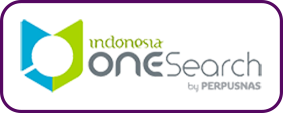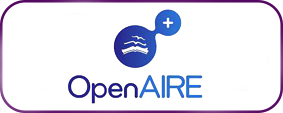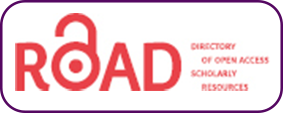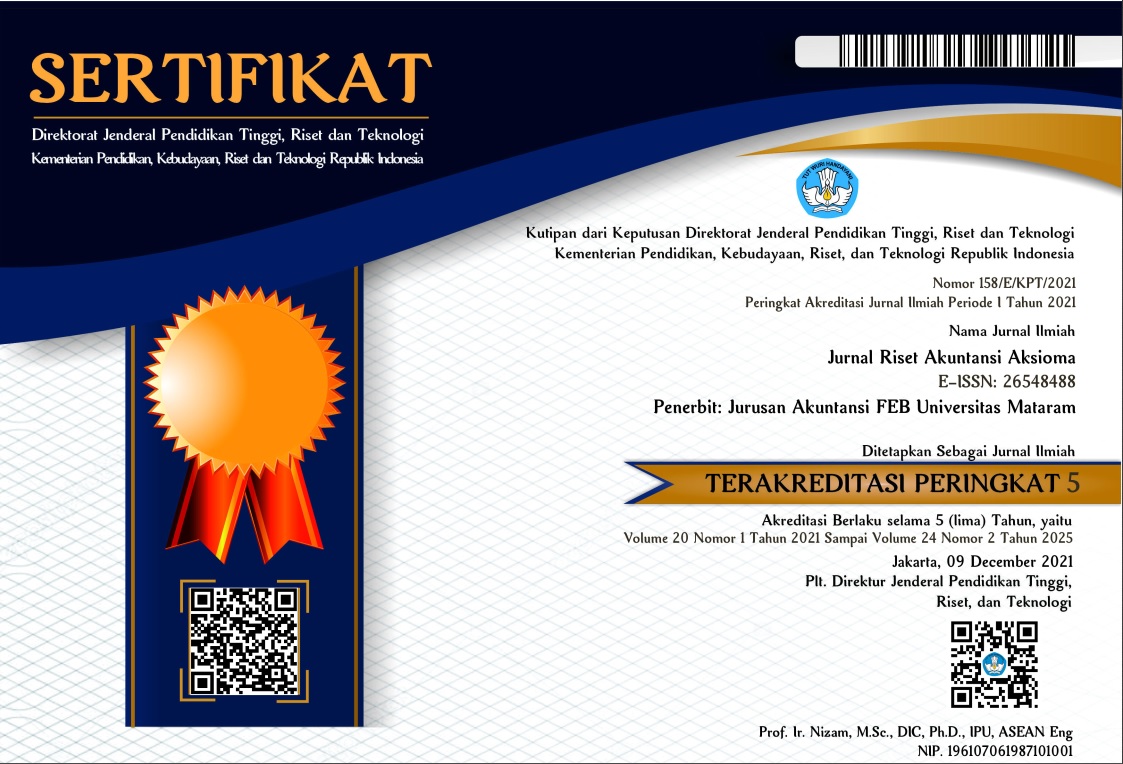ANALISIS EKSPERIMENTAL: PERBANDINGAN MEDIA PEMBELAJARAN DAN TEKANAN WAKTU TERHADAP KETEPATAN MENJAWAB SOAL AKUNTANSI KEUANGAN BERBASIS TEORI KOGNITIF PEMBELAJARAN MULTIMEDIA
Abstract
This study examined the improvement of students' understanding in studying financial accounting by considering the learning method with time pressure on students' accuracy in answering questions. The use of multimedia is expected to minimize cognitive load, especially in time constraints. The purpose of this study is to analyze the role of text and video media and time pressure in their influence on the accuracy of answering financial accounting questions. This study is a 2x2 factorial design experimental method. The dependent variable is the accuracy in answering accounting questions, while the independent variables are learning materials in the form of text or video, and time pressure in completing questions. The results of this experimental approach are that students who learn using video media will show higher accuracy in answering financial accounting questions than students who learn using text media is not proven. Both text and video, can support students in solving accounting problems. Students who are in low time pressure conditions will have higher accuracy in answering questions than students in high time pressure conditions because time pressure has increased students' cognitive load so that students are not calm in answering questions and resulting in inaccuracy in answering accounting case questions.
References
Coovadia, H., & Ackermann, C. (2021). Integrating digital pedagogies into a typical student learning lifecycle and its effect on exam performance. Accounting Education, 30(1), 42–62. https://doi.org/https://doi.org/10.1080/09639284.2020.1811993
D’Aquila, J. M., Wang, D., & Mattia, A. (2019). Are instructor generated YouTube videos effective in accounting classes? A study of student performance, engagement, motivation, and perception. Journal of Accounting Education, 47, 63–74. https://doi.org/https://doi.org/10.1016/j.jaccedu.2019.02.002
Désiron, J. C., Schmitz, M.-L., & Petko, D. (2024). Teachers as Creators of Digital Multimedia Learning Materials: Are they Aligned with Multimedia Learning Principles. Technology, Knowledge and Learning. https://doi.org/https://doi.org/10.1007/s10758-024-09770-1
Donnelly, D. P., Kovar, S. E., & Fisher, D. G. (2019). The Mediating Effects of Time Management on Accounting Students’ Perception of Time Pressure, Satisfaction with the Major, and Academic Performance. Journal of Accounting and Finance, 19(9), 46–63. https://doi.org/https://doi.org/10.33423/jaf.v19i19.2695
Ewelt-Knauer, C., Herrmann, F., Mai, S., Pleger, A., & Schuetz, H. (2025). Keeping the balance: the impact of an instructional edutainment-based video series on students’ motivation and performance. Accounting Education, 1–37. https://doi.org/https://doi.org/10.1080/09639284.2025.2482690
Mayer, R. (2021). Cognitive Theory of Multimedia Learning (3rd editio). Cambridge University Press. https://doi.org/https://doi.org/10.1017/9781108894333
Pollock, Marchantia; Schmulian, Astrid; Coetzee, S. A. (2023). Do team-based written or video explanations of course content enhance accounting students’ knowledge, communication, and teamwork skills? Journal of Accounting Education, 65.
Saputra, K. A. K., Priliandani, N. M. I., Pradnyanitasari, P. D., & Larasdiputra, G. D. (2019). Case-Based Learning dalam Pembelajaran Akuntansi Sektor Publik. Aksioma, 18(1), 113–155. https://doi.org/https://doi.org/10.29303/aksioma.v18i1.57
Spiceland, C. P. D. S. S. j. S. I. (2019). Using a course redesign to address retention and performance issues in introductory accounting. Journal of Accounting Education.
Sugahara, Satoshi; Cilloni, A. (2021). Mediation effect of students’ perception of accounting on the relationship between game-based learning and learning approaches. Journal of Accounting Education, 56.
Sugahara, S., & Dellaportas, S. (2018). Bringing active learning into the accounting classroom. Meditari Accountancy Research, 26(4), 576–597. https://doi.org/https://doi.org/10.1108/MEDAR-01-2017-0109
Sweller, J., Merriënboer, J. J. G. van, & Paas, F. (2019). Cognitive Architecture and Instructional Design: 20 Years Later. Educational Psychology Review, 31, 261–292. https://doi.org/https://doi.org/10.1007/s10648-019-09465-5
Tsay, B.-Y., Campbell, J. E., Ariail, D. L., Miller, S. K., & Shumate, L. S. (2023). Improving introductory financial accounting learning and retention through course redesign. Journal of Accounting Education, 62. https://doi.org/https://doi.org/10.1016/j.jaccedu.2022.100816 Get rights and content
Wolcott, Susan K.; Sargent, M. J. (2021). Critical thinking in accounting education: Status and call to action. Journal of Accounting Education, 56.
Copyright (c) 2025 Rr. Puruwita Wardani, Susanna Hartanto

This work is licensed under a Creative Commons Attribution 4.0 International License.




















